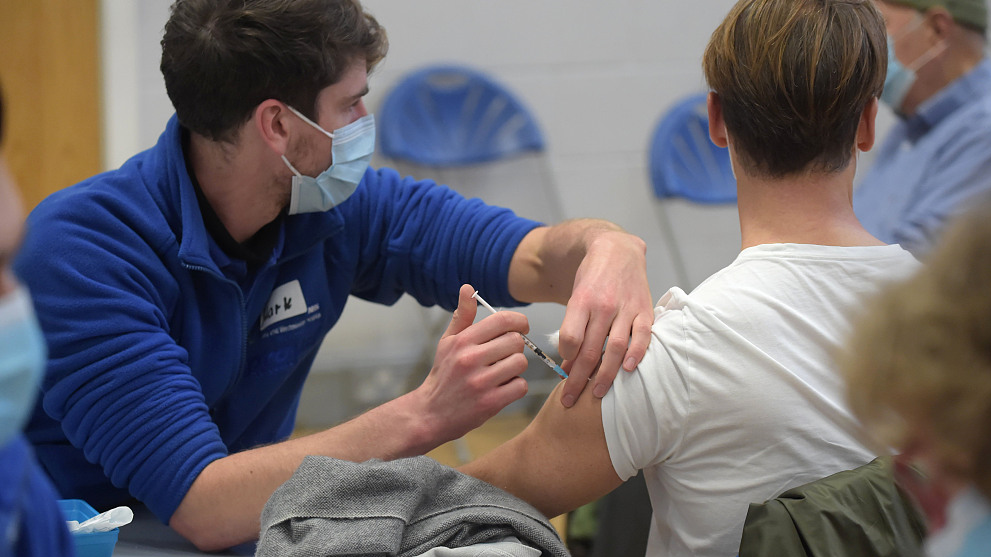
A health worker administers a COVID-19 vaccine at Stow Health Vaccination Center in London, England, December 13, 2021. /CFP
A health worker administers a COVID-19 vaccine at Stow Health Vaccination Center in London, England, December 13, 2021. /CFP
The two-dose COVID-19 vaccine regimens from Oxford-AstraZeneca and Pfizer-BioNTech do not induce enough neutralizing antibodies against the coronavirus variant Omicron, leading to an increased likelihood of breakthrough infections in previously infected or double-vaccinated individuals, a UK study found.
Researchers from the University of Oxford published results on December 11 from a study yet to be peer-reviewed, where they analyzed blood samples from participants who were given doses from Oxford-AstraZeneca or Pfizer-BioNTech in a large study looking into mixing of vaccines.
The Oxford study said that there was no evidence yet that the lower level of infection-fighting antibodies against Omicron could lead to higher risk of severe disease, hospitalization or death in those who have got two doses of approved vaccines.
"These data are important but are only one part of the picture. They only look at neutralizing antibodies after the second dose, but do not tell us about cellular immunity, and this will also be tested," Matthew Snape, Oxford professor and co-author of the paper, told the university news press.
A week earlier, the same research group published a study saying that mixing COVID-19 vaccines can induce higher antibodies and T-cell responses.
(With input from Reuters)

